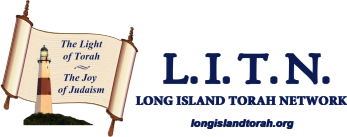Vayeitzei
Fleeing the land of Canaan, Jacob spends the night on a lonely hilltop, identified by the Midrash as Mount Moriah - future site of the Temple in Jerusalem. Jacob dreams of a ladder to Heaven, with angels climbing up and down; God Himself speaks to Jacob, promising Divine blessing, protection, and a future as the father of a great nation who will inherit the Holy Land. Buoyed by this uplifting vision, Jacob continued his journey to in Charan, home of his maternal uncle Laban.
On the outskirts of Charan, Jacob meets Rachel, Laban’s daughter. Inspired by the family connection they share, Jacob performs a superhuman feat: he rolls a large boulder from the mouth of the well – ordinarily the work of several shepherds – and waters his uncle’s sheep.
Convinced that Rachel is his predestined bride, Jacob offers Laban seven years’ labor as a shepherd in exchange for Rachel’s hand in marriage. Laban agrees, but tricks Jacob on his wedding night by presenting Leah, his other daughter, instead. Jacob has no choice but to agree to another seven years’ labor in exchange for being allowed to marry Rachel too.[1]
Leah begins to bear children immediately, but Rachel remains barren. She finally has a son, whom she names Joseph, signifying her hope for another child. Jacob extends his stay in Charan to work for Laban for a profit. Aided by Divine assistance, Jacob prospers despite the tireless efforts of Laban, the arch-swindler, to cheat him at every opportunity.
Eventually, God commands Jacob to leave Charan. While Laban is away on business, the family flees westward to Canaan. Laban pursues Jacob, but God commands him in a dream to leave Jacob alone. Laban contents himself by indignantly accusing Jacob of mistreating him; Jacob, in turn, rebukes Laban, pointing out his unflinching adherence, at great personal sacrifice, to the highest standards of honesty, despite Laban’s incessant attempts to rob him blind. In the end, the two seal a pact of peace. Laban returns home, and Jacob and his family continue their journey to Canaan.
[1] The classical Biblical commentators explain why this arrangement was acceptable under the circumstances, although it would be forbidden today
Click below to open a printable pdf
| vayeitzei_snapshot_and_closer_look_template_final.pdf | |
| File Size: | 926 kb |
| File Type: | |

